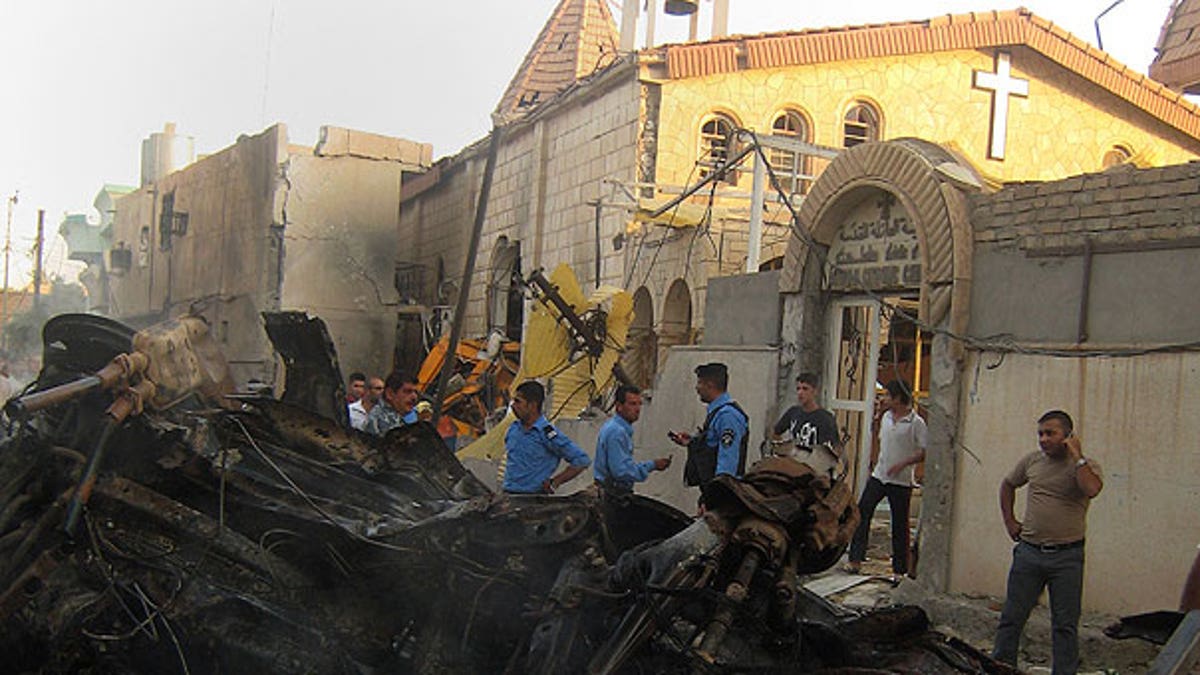
Aug. 2: Iraqis inspect the site of an early morning car bomb attack in front of a Church in Kirkuk, 180 miles north of Baghdad, Iraq. (AP)
SULAIMANIYAH, Iraq – A car bomb outside a Christian church wounded 23 people on Tuesday morning, police said, as security forces found and disabled vehicles packed with explosives outside two other parishes in northern Iraq.
The bombing and the two averted attacks in the northern city of Kirkuk signal continued violence against Iraqi Christians, nearly 1 million of whom have fled since the war began in 2003.
"The terrorists want to make us flee Iraq, but they will fail," said the Rev. Haithem Akram, the priest of one of the churches that was targeted. "We are staying in our country. The Iraqi Christians are easy targets because they do not have militias to protect them. The terrorists want to terrorize us, but they will fail."
The assault began at 6 a.m., when the car blew up outside the Syrian Catholic church, severely damaging the church and nearby houses, said police Col. Taha Salaheddin.
The parish's leader, the Rev. Imad Yalda, was the only person inside at the time of the blast and was wounded. The 22 other wounded were people whose nearby homes were hit by the blast, said Kirkuk police chief Maj. Gen. Jamal Tahir.
Following the blast at the Syrian Catholic church, police discovered two more car bombs parked outside the Christian Anglican church and the Mar Gourgis church, both in downtown Kirkuk.
The ethnically and religiously mixed city of Kirkuk is located 180 miles (290 kilometers) north of Baghdad. Sunni extremists often target Christians who are seen as unbelievers.
Violence against Christians stepped up late last year, climaxing in the Oct. 31 siege of a Catholic cathedral in downtown Baghdad that left 68 dead and scored wounded when al-Qaida suicide bombers held worshippers hostage for hours before detonating their explosives belts.
Since then, the Vatican and the U.S. Congress have pleaded for Iraq's government to do more to protect Christians in Iraq.
A State Department report says Christian leaders estimate that 400,000 to 600,000 Christians remain in Iraq, down from a prewar level of as high as 1.4 million by some estimates.
